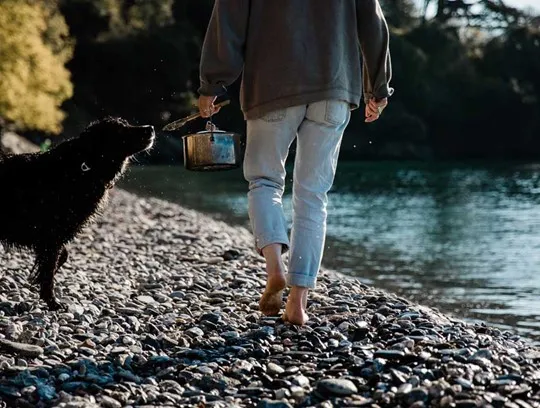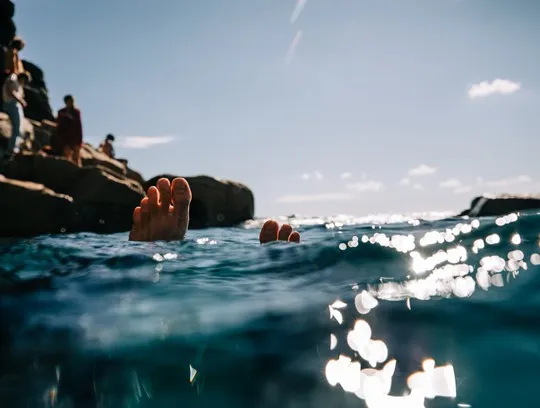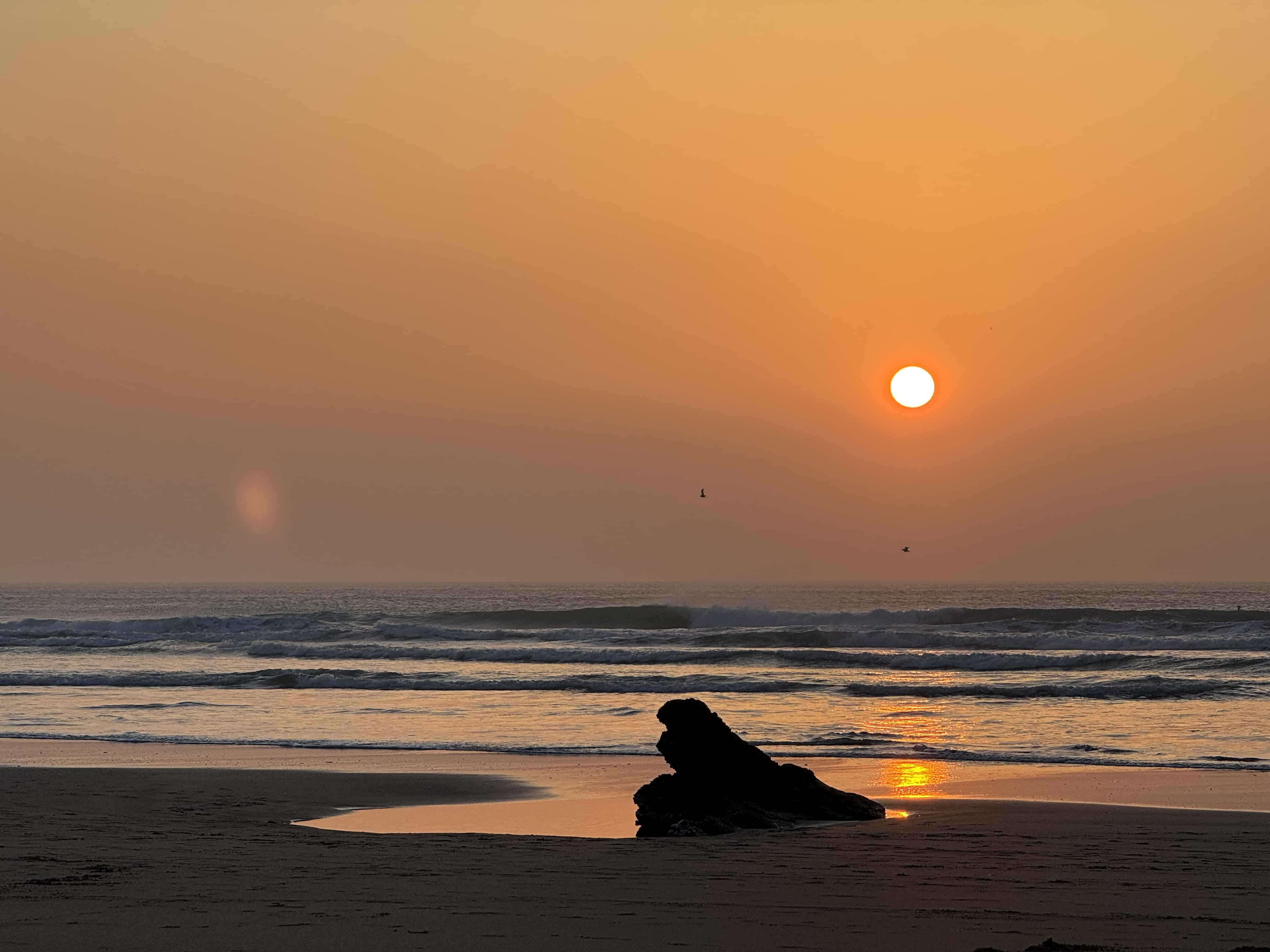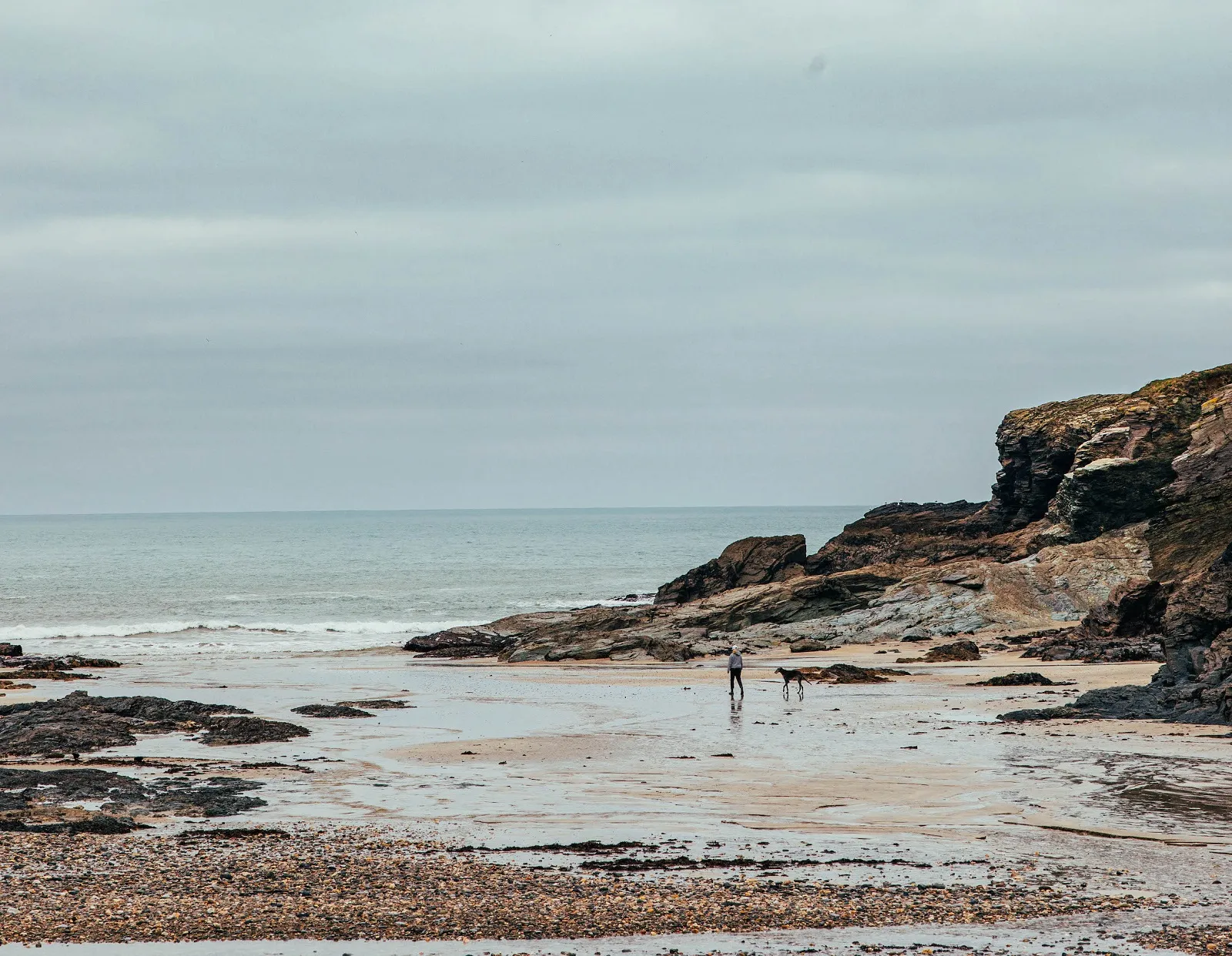Home / Beach atmosphere
Beach atmosphere
6th January 2025
Colder, but not unwelcoming, what is it about the atmosphere of the coast in winter that draws us in? And why is maintaining our connection to nature year-round so important?
Summer is the peak of coastal activity: as temperatures drop, t-shirts are swapped out for woolly jumpers and the shore empties out. The sea turns an icier shade of blue, and as nature winds down around us, we often follow suit. But what do we miss if we miss out on time by the sea? And what draws us to the coastline in the colder months?
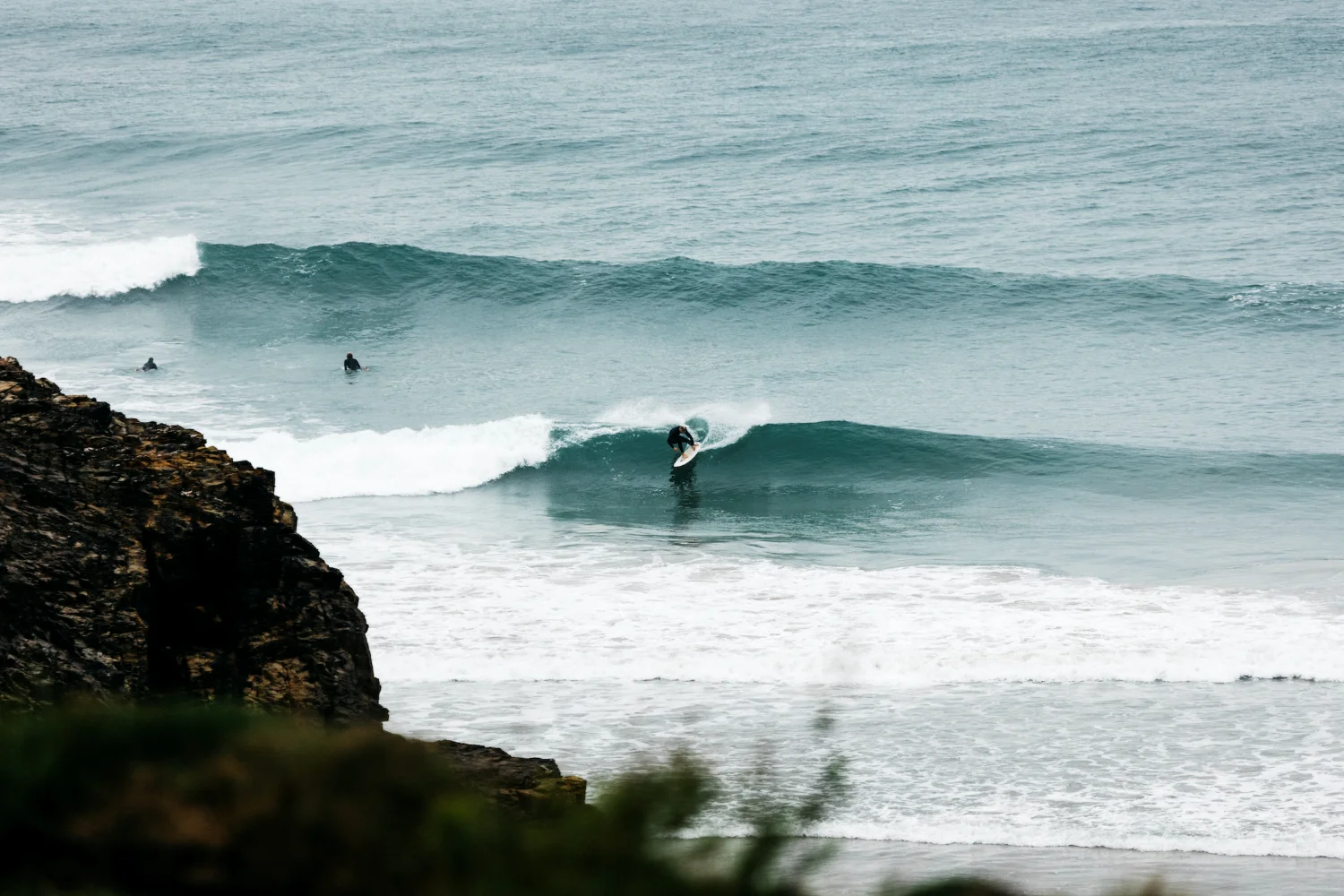
Image credit: Abbi Hughes
“Perhaps we can see nature at its rawest when we’re standing on the edge of the land…It taps into our desire to experience the sublime.”
EXPERIENCE THE SUBLIME
There’s beauty to be found in the cold, especially along rugged stretches of coast. A change in the seasons doesn’t have to keep us away. In fact, this darker, cooler atmosphere can be what draws us in.
Writer Wyl Menmuir’s book Draw of the Sea examined people’s relationship to the coast. For Wyl, winter is a time to appreciate the shifts in the landscape – nature is exposed and heightened. And by the sea, we’re at a boundary line: “Perhaps we can see nature at its rawest when we’re standing on the edge of the land, rather than in the middle of it. It taps into our desire to experience the sublime, which is something I’ve always been interested in.”
“And it’s those times where I see people riding really challenging waves, and, for me, the sea is just more interesting to watch when there’s a lot more movement in it.”
The sea might be turning colder, but the waves get bigger, and its colour becomes deeper, more complex. Weather patterns shift, affecting the way water moves, and all of this becomes so much more noticeable.
A SENSE OF PERSPECTIVE
The sea during winter can put things in perspective, says Wyl. This comes with being at odds with nature at its most volatile – and that’s exciting, whether you’re right there in it, or watching from afar. “I can sit on the cliffs and watch surfers riding enormous waves in the autumn and winter swells, here in Cornwall on the north coast,” he explains. “And it’s those times where I see people riding really challenging waves, and, for me, the sea is just more interesting to watch when there’s a lot more movement in it.”
Against the high winds, dramatic cliffs and outcrops, this is where comfort is found. Wyl finds that the long views of the coast, the water, give a sense of perspective. Against the backdrop of something as expansive as the sea, our problems and fears feel smaller, more manageable.
Wyl compares that feeling, of standing on the cliff face, looking out at the water, to staring up at a dark sky full of stars. After confronting the enormity of nature, we feel more comfortable in our place within it. There’s a certain meditation to be found.
“The coast encourages us to get outdoors, dressing for the weather to enable us to take in the fresh air and embrace the elements, creating a primal sense of nature connectedness that promotes stress reduction and improves sleep.”

Image credit: Abbi Hughes
MOVING WITH THE SEA
The wind, the skies, the sea, all have a profound effect on the mind and body. The human connection to nature is a powerful one – for many, it’s the key to surviving through tough times, a way to keep centred. Lizzi Larbalestier, of Going Coastal Blue – a blue health coach, spends time in blue spaces all year round, and encourages others to do so too, whether it’s actually getting into the water, or simply walking alongside it.
Movement, Lizzi says, is crucial for mental and physical health. “The coast encourages us to get outdoors, dressing for the weather to enable us to take in the fresh air and embrace the elements, creating a primal sense of nature connectedness that promotes stress reduction and improves sleep.”
WINTER WELLBEING
As the coastline quietens down during winter, transforming into a more peaceful and quieter environment – it is a great place to pause and reflect on the year, with plenty of space to absorb the sweeping horizons, vast open skies, and glistening shoreline. “Spending time in blue space,” Lizzi says, “allows us to breathe well, to slow down, to think more clearly, to feel much more connected with ourselves, with each other and with the planet.”
With the approach of winter comes a desire to hunker down, sink into creature comforts, embracing warmth and light wherever we can find it. As Lizzi notes, getting natural daylight and spending time outdoors during this time of year is incredibly important for our wellbeing and that includes our physical and emotional health. But sunlight can be scarce mid-winter, so we should embrace and enjoy it where we can.
Spending time by water is great for our mental health. Water, in all seasons, in all forms, is inherently soothing. We are drawn to its feel, its colour and sounds. Lizzi explains that simply watching the waves can calm us down, creating “attention restoration with less complex and frenetic landscapes allowing our mind to drift into a more meditative state.”
“We gain a lot from a strong connection to the coast, but our relationship with all of nature is symbiotic”. We can gain from it, but also need to give back.”
“We breathe differently at the coast,” explains Lizzi, “positively impacting our heart rhythm, lowering blood pressure and enabling our nervous system to move into a parasympathetic state of rest and recovery.”
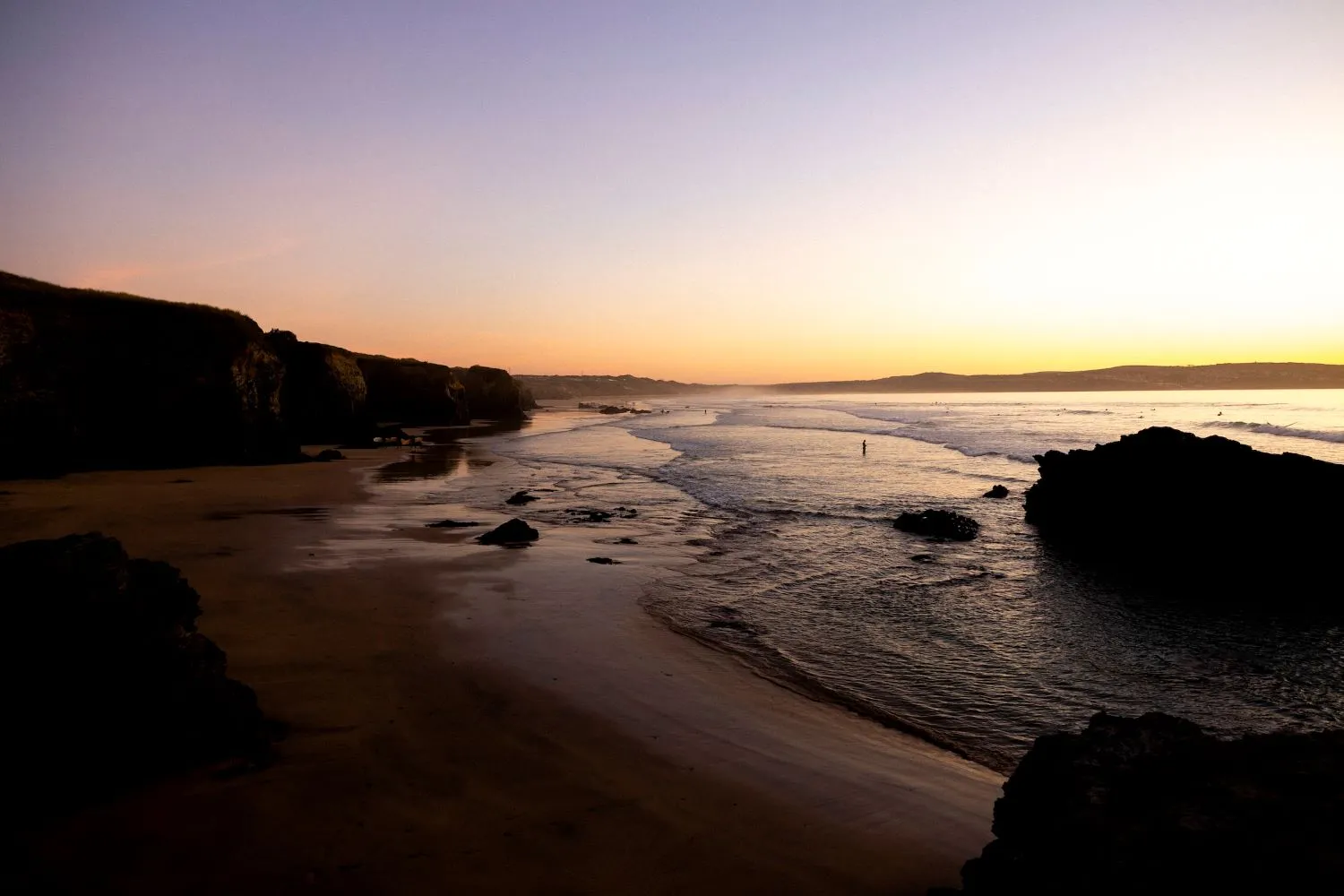
Image credit: Abbi Hughes
NATURE AND NURTURE
Lizzi depicts the sea as a “therapist or health practitioner, a partner for our lives to guide our intuition and keep us well”. “We gain a lot from a strong connection to the coast, but our relationship with all of nature is symbiotic.” she says. We can gain from it, but also need to give back.
“Take three for the sea,” recommends Lizzi. “Conduct a mini beach clean or get involved in a large community beach clean with the local community – these organised collective events not only help the ocean but being part of something purposeful in the form of community activism and advocacy can boost positive ‘feel good’ neuro chemicals like oxytocin and dopamine associated with what is known as the ‘helpers high’.”
From experiencing the sublime to feelings of perspective and breathing in the physical and mental benefits of being by the sea, there’s much to draw us to that unique beach atmosphere in the colder, quieter months.
This #SecretSeason, stay footsteps from the coastline: experience the beach atmosphere benefits.

